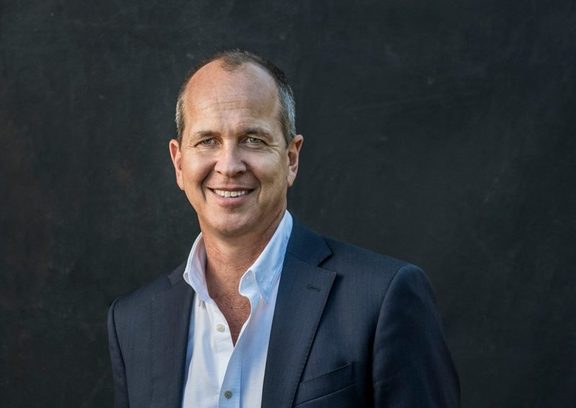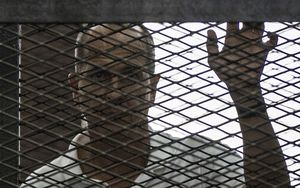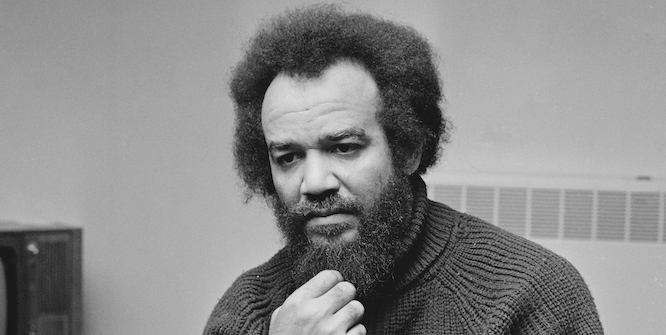
There has been much gnashing of ‘liberal’ teeth and pulling out of ‘centrist’ hair following the Tory government’s announcement that the BBC licence fee will be abolished in 2027.
Culture Secretary Nadine Dorries declared via Twitter, with a dash of right-wing relish:
‘This licence fee announcement will be the last. The days of the elderly being threatened with prison sentences and bailiffs knocking on doors are over. Time now to discuss and debate new ways of funding, supporting and selling great British content.’
A Guardian news piece reported:
‘The government has repeatedly criticised the corporation’s news output, claiming it is biased against the government and linking negative coverage of the prime minister to the licence fee negotiations.
‘The BBC has faced repeated deep real-terms spending cuts since the start of the Tory-Liberal Democrat coalition government in 2010, with the Conservatives forcing the broadcaster to pay for free licences for the over-75s – then blaming it when they took the benefit away.’
Like millions of others, we have long enjoyed many BBC programmes, including quality drama, nature and science documentaries, sports coverage, music on television and radio, and more. As we wrote in our book, Newspeak (Pluto Press, London, 2009):
‘We grew up with the BBC, or “Auntie Beeb”. We watched Watch With Mother with our mothers; we walked the walk and talked the talk with Bill and Ben the Flower Pot Men. The excitement of childhood at Christmas is forever linked in our minds with the lighting of advent candles on Blue Peter, or the Morecambe and Wise Christmas Show. And then there was Top of the Pops, Tomorrow’s World, The Sky At Night. These were more like old friends than TV programmes. Even the BBC voiceovers were a source of comfort – calm, reassuring (if conspicuously well-spoken), gently guiding us between programmes.’
But when it comes to BBC News, it is time we all grew up and rejected the absurd fiction of BBC ‘balance’ and ‘impartiality’. Over the past two decades, we have provided endless examples of deep BBC bias, distortions and omissions. On our 20th anniversary last year, BBC News featured heavily in our round-up of ‘propaganda horrors’: see Part 1 and Part 2.
Time and time again, we have shone a light on the nonsensical BBC claim that ‘we don’t do propaganda‘; on the arrogance and ignorant boasts of BBC News; and on the serial propaganda by omission in BBC News coverage, covering for the crimes of ‘our’ governments.
Somehow we are supposed to overlook all this, or see it as just occasional ‘mistakes’.
A tweet from actor Phil Davis was typical of this blinkered mindset:
‘Nadine Dorris [sic] is an idiot. The BBC is a national treasure. Something we can be proud of despite its mistakes and missteps. To scupper it like this is cultural vandalism. Disgraceful.’
A BBC promo video from the 1980s, extolling the Beeb’s supposed virtues, has gone viral on social media. It features John Cleese in a busy pub, asking indignantly, ‘What has the BBC ever done for us?’. Cleese then encounters numerous celebrity BBC presenters giving examples of ‘What the BBC has done for us’ across sport, science, nature, comedy and BBC News. Of course, this was a revamped version of the scene in the Monty Python film, The Life of Brian, where Cleese plays the role of an anti-Roman dissident demanding, ‘What have the Romans ever done for us?’.
Football presenter Gary Lineker highlighted the clip with this remark:
‘The BBC is revered, respected and envied around the world. It should be the most treasured of National treasures. Something true patriots of our country should be proud of. It should never be a voice for those in government whoever is in power.’
We have often admired Lineker’s willingness to speak out on issues that matter to him – it is rare, because risky, for a high-profile broadcaster to step repeatedly into the political arena as he does. But it is ugly indeed to see him slavishly praise the organisation from which he has received a salary measured in the millions. His comment reheats the classic British conceit, a kind of imperial hangover: ‘we’ have the best broadcaster (the BBC), ‘we’ have the best democracy (the Westminster parliament), ‘we’ have the best writer (Shakespeare), ‘we’ have the best pop group (The Beatles), and so on.
Lineker’s comments are a close cousin of the view expressed in 2000 by senior Guardian commentator Polly Toynbee in an article titled, ‘The West really is the best’:
In our political and social culture we have a democratic way of life which we know, without any doubt at all, is far better than any other in the history of humanity. Even if we don’t like to admit it, we are all missionaries and believers that our own way is the best when it comes to the things that really matter.
Three years later, Western ‘missionaries’ invaded Iraq in an illegal war of aggression that cost the lives of around one million people. Perhaps good karma explains ‘our’ acquisition of Rumaila oilfield – the largest oilfield in Iraq and the third largest in the world – currently operated by BP. Similarly, US ‘believers’ took hold of Iraq’s West Qurna I oilfield, currently operated by the US oil giant ExxonMobil.
What kind of ‘political and social culture’ and ‘democratic way of life’ allows all of this to happen without a single US or UK politician paying any kind of price, and without journalists even noticing or discussing who ended up with Iraq’s oil? Needless to say, Lineker’s beloved BBC has played a key role in making this possible on ‘our’ side of the propaganda pond.
Leaving himself badly exposed at the back, Lineker defended BBC News, in particular, against accusations of bias:
‘Quick reminder: the BBC has tens of thousands of people that work for It, with a huge cross section of views. The corporation doesn’t think as one. There’s no political criteria from above other than impartiality in news & current affairs. Any perceived bias is probably your own.’
Talking of bias, Upton Sinclair supplied the perfect response to this preposterous assertion:
It is difficult to get a man to understand something, when his salary depends upon his not understanding it.
Even (then) Guardian editor Alan Rusbridger understood the obvious problem with Lineker’s argument when he told one of us in an interview:
‘If you ask anybody who works in newspapers, they will quite rightly say, “Rupert Murdoch”, or whoever, “never tells me what to write”, which is beside the point: they don’t have to be told what to write… It’s understood.’
Comedian and BBC regular Dara Ó Briain also heroically spoke up for his corporate benefactor:
‘If people want to complain to me about bias in BBC news please remember to include which bias it is. It’s fun to watch you cancel each other out.’
The childish argument: if accusations of both ‘left-wing’ and ‘right-wing’ bias are made against BBC News, then the truth must lie somewhere in the middle. As if propaganda supplied by big money state-corporate think tanks and front groups is comparable to criticism rooted in compassion for the victims of state-corporate power. In the real world, arguments must be assessed on their merits, rooted in evidence and rational analysis; not lazy sweeping assertions and career-friendly unthink.
As Twitter user @docrussjackson responded:
‘For all those denying any #BBCBias on @BBCNews & @BBCPolitics shows, here’s some of the formal “corrections & clarifications” to “mistakes” made by the @BBC in 2019, which all *completely coincidentally* helped the Tories by damaging @UKLabour‘s reputation.’
A lengthy thread followed of which the most damning item was the incessant amplification by the BBC of supposed deep-rooted antisemitism within the Labour party under Jeremy Corbyn. The BBC played a central role in the propaganda blitz that demolished the prospect of moderate socialism under a Corbyn-led Labour government.
This often descended into outright farce; not least that ‘incredible moment’, noted one Twitter user, when BBC Newsnight ‘jumped the editorialising shark and gave us #Corbyn as Voldemort’. The Newsnight editor responsible for depicting Corbyn as Harry Potter’s demonic arch-enemy was Ian Katz. Readers who have been following us for far too long will recall that Katz was editor of the Guardian G2 section which published a notorious interview by Emma Brockes depicting Noam Chomsky as a commie-friendly, Voldemort-style demon in 2005. As Chomsky commented at the time:
‘It is an impressive piece of work, and, as I said, provides a useful model for studies of defamation exercises, or for those who practice the craft. And also, perhaps, provides a useful lesson for those who may be approached for interviews by this journal.’
Katz is currently the ‘chief content officer’ at Channel 4. His career path sums up the ‘liberal’ media in a nutshell.
The concerted effort to destroy Corbyn’s mild version of socialism was McCarthyism on steroids right across the supposed corporate media ‘spectrum’, with no exceptions. Meanwhile, inside the plush offices of BBC News, senior editors and journalists seemingly never had the tiniest doubt that they were being objective and impartial in working so blatantly to limit democratic choice.
If readers are tempted to dismiss us as ‘wild men on the wings’, consider that a senior BBC executive has actually gone further than us in challenging the BBC’s supposed ‘impartiality’. In 2009, no less a figure than Greg Dyke, a former BBC director-general, openly declared that the BBC was part of an anti-democratic ‘Westminster conspiracy’. A BBC article quoting Dyke, who resigned as director-general in 2004 in the wake of the Hutton report, began:
‘The BBC is part of a “conspiracy” preventing the “radical changes” needed to UK democracy, the corporation’s former director general has said.’
Dyke commented:
‘I tried and failed to get the problem properly discussed when I was at the BBC and I was stopped, interestingly, by a combination of the politicos on the board of governors… the cabinet interestingly – the Labour cabinet – who decided to have a meeting, only about what we were trying to discuss, and the political journalists at the BBC.
‘Why? Because, collectively, they are all part of the problem. They are part of one Westminster conspiracy. They don’t want anything to change. It’s not in their interests.’
Dyke called for a parliamentary commission to look into the ‘whole political system’, adding that:
‘I fear it will never happen because I fear the political class will stop it.’
They did, of course – Dyke’s comments were ignored and instantly buried out of sight.
In 2016, Sir Michael Lyons, former chairman of the BBC Trust, said that there had been ‘some quite extraordinary attacks’ on Labour leader Jeremy Corbyn by the BBC. Lyons’ comments were also swept under the carpet, never to be mentioned publicly by senior BBC figures.
As for Lineker’s remark denying systemic BBC News bias, Canadian political analyst Joe Emersberger noted:
‘A BBC employee dismisses idea that the BBC has any bias. If you denounce the BBC’s promotion’s of the UK’s barbaric foreign policy, and that it keeps the UK public mired in ignorance about it, that’s just your bias at work’
Lineker is not, in fact, a BBC employee; rather a freelancer with a lucrative BBC contract. However, the distinction is a moot point here.
Emersberger provided a salutary example of how BBC News has helped to keep the public in the dark about the consequences of UK foreign policy:
‘There are ways to objectively test exactly how much ignorance the big UK media like the BBC impose on the public about their own government’s role in the world’
He then cited a nationwide sample of UK citizens asked to estimate the death toll from the Iraq war. According to 59% of the respondents, fewer than 10,000 Iraqis died as a result of the war. The actual death toll is far, far greater: around one million. The results of this crowdfunded survey were shocking and, as Emersberger observed, ‘a searing indictment of the British media.’
This has long been standard for the BBC when it comes to burying the West’s crimes of state. John Pilger put it succinctly:
‘The BBC has the most brilliant production values, it produces the most extraordinary natural history and drama series. But the BBC is, and has long been, the most refined propaganda service in the world.’
Saint David
While BBC nature documentaries are indeed world-renowned, they have long ignored the deepest political and economic forces destroying the natural world. David Attenborough only recently started shining a light on the climate crisis, and he is still pulling his punches when it comes to identifying those responsible.
In 2018, a Guardian article by George Monbiot criticising Attenborough’s output was subtitled:
‘By downplaying our environmental crisis, the presenter’s BBC films have generated complacency, confusion and ignorance’
Monbiot added:
‘His new series, Dynasties, will mention the pressures affecting wildlife, but Attenborough makes it clear that it will play them down. To do otherwise, he suggests, would be “proselytising” and “alarmist”. His series will be “a great relief from the political landscape which otherwise dominates our thoughts”. In light of the astonishing rate of collapse of the animal populations he features, alongside most of the rest of the world’s living systems – and when broadcasting as a whole has disgracefully failed to represent such truths – I don’t think such escapism is appropriate or justifiable.’
His conclusion:
‘If you ask me whether the BBC or ExxonMobil has done more to frustrate environmental action in this country, I would say the BBC.’
There has certainly never been a proper analysis in any nature documentary, or in any BBC programme, of the global system of state-corporate power that has dragged humanity to the brink of climate collapse and a sixth mass extinction in Earth’s history. We actually stand at the precipice of human extinction.
Perhaps unhappy to find himself wheeled out to defend the BBC with a 40-year old promo clip, John Cleese said on Twitter:
‘The BBC’s decline began a long time ago, with the installation of the nerdy John Birt His “philosophy” destroyed the BBC at a time when it was giving us the best TV in the world’
But, in terms of being a public service broadcaster, the BBC has been ‘in decline’ for much longer. In fact, it has been staunchly pro-establishment from its very inception under Lord Reith. As we have pointed out repeatedly, Reith confided in his diary during the 1926 General Strike:
‘They [the government] know they can trust us not to be really impartial.’
As just one example of BBC News being trusted by the government not to be impartial, who can forget the BBC’s refusal to broadcast the Gaza Aid Appeal in 2009 after yet another murderous assault by Israel? This refusal was memorably exposed and challenged live on-air by Tony Benn. It was a rare and admirable example of the myth of BBC ‘impartiality’ being held up to public scrutiny across the globe.
BBC News: ‘Unwatchable, State Propaganda’
Nils Melzer, the UN Special Rapporteur on Torture, has been outspoken in his defence of Julian Assange, WikiLeaks and the public’s right to know what governments are doing. In particular, he is blunt about:
‘the BBC’s failure to expose the gross arbitrariness of Assange’s judicial persecution in the UK.’
He expanded:
‘We cannot have states that have unchecked power. […] branches of government tend to collude with each other if we don’t supervise them and that’s why we have the free press that’s tasked to do that. But the press that doesn’t do that isn’t free. It’s not the press at all. It is just the public relations departments of those governments.’
Melzer continued:
‘And that’s why the emergence of Wikileaks is just a natural consequence of the media failing to do their job. Because someone needs to inform and empower the public’.
In fact, the state-corporate media is not ‘failing to do their job’. Because their ‘job’ – their primary function and responsibility – is to promote and protect state-corporate interests; not the interests of the public.
In an extensive analysis of the BBC, political analyst Gavin Lewis gave ample evidence that the BBC has long been:
‘a full-blown corporate state broadcaster and propagandist.’
BBC News, he continued:
‘in no way achieves any ideal of a discursive space free from market motives. Instead it repeats and mirrors existing institutional power dynamics. Formally, the channel is a twin of Rupert Murdoch’s Sky News. Its editorial values are so identical that viewers get exactly the same hierarchy of news stories, at the same time of day, and predominantly from the same ideological viewpoint.’
Lewis concluded:
‘If it now finds itself increasingly irrelevant to its social base and at risk of extinction, then it only has itself to blame. Without a genuine, representative sociological and intellectual connection to the society it purportedly serves, it is not really public service broadcasting, but corporate propaganda, and in the long run, who will care if that survives?’
Matt Kennard of Declassified UK, a news service that does actually serve the public interest, believes that:
‘BBC News is closest we have in UK to straight state propaganda. Sky News + ITV are not great, but I find BBC News, like CNN, actually unwatchable. You can feel it eroding your brain as you watch. Fact we have to pay for pleasure of being propagandised by it makes it farcical.’
Des Freedman, Professor of Media and Communication Studies at Goldsmiths, University of London, concurred:
‘Amazing how little this is understood by people outside the UK who are so enraged by their own propaganda systems (whether state or commercial) that they imagine BBC News MUST necessarily be better and therefore see it as a desirable model for their own news systems’
All too many BBC luvvies and their supporters are currently wringing their hands at the prospect of Rupert Murdoch, or some other neafarious billionaire, getting their hand on the BBC. We are now all supposed to come to the aid of the state broadcaster. Kerry-Anne Mendoza, founder of left-wing news website The Canary, noted the irony:
‘BBC pundits pleading with the left to back them after a half decade campaign smearing us as antisemites’
The worst example of the role of BBC News in the propaganda system is enabling the criminal lack of effective government action to tackle the threat of runaway climate instability and the real risk of human extinction. BBC News is, and has long been, a crucial component in the network of establishment power that has helped to create and accelerate this catastrophe.
Climate activist Ben See highlighted the latest examples of dangerous global warming from around the world, and he observed via Twitter:
‘CLIMATE-EXTINCTION CRISIS
We’re heading for 2°C in the 2030s, or the 2040s.
The global food system is shifting into high risk territory. Entire ecosystems are collapsing. Billions of people will soon face intolerable risk.
Corporate media editors?
Sitting tight.
Assessing.’
This, of course, was a reference to the recent Netflix movie, Don’t Look Up, which, with deeply black humour, exposed the political and media ‘response’ to the climate crisis.
If the BBC is to be ‘saved’, it needs to be rebuilt from the ground up as a truly public service broadcaster. And, more importantly, if the human species is to be saved, we need full and unfettered access to information about how governments and corporations are destroying our planet. Crucially, while we are waiting for an unlikely transformation of the BBC to take place, we should focus on demanding the large-scale government action that is required now to forestall the looming climate catastrophe.
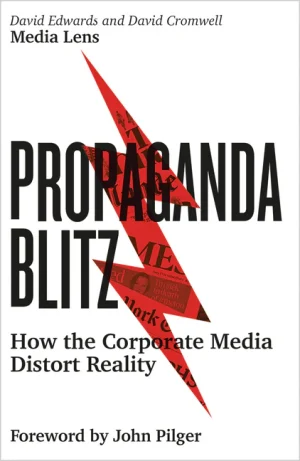
The post
Save The BBC? In Whose Interests? first appeared on
Dissident Voice.
This post was originally published on Dissident Voice.
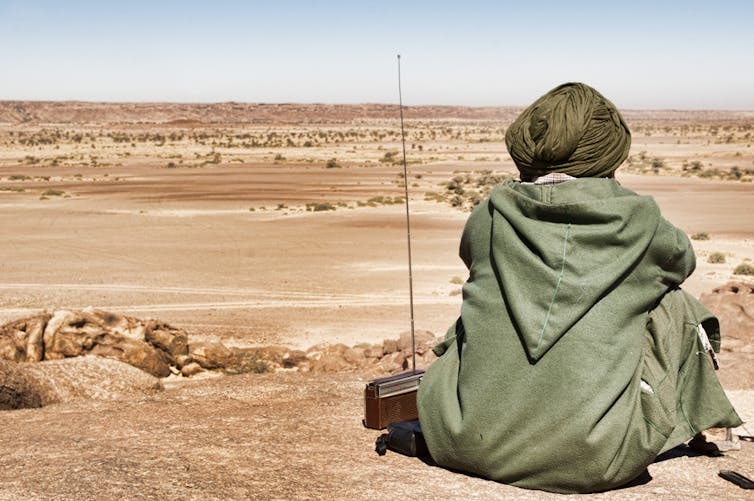
![]()












 (@Haggis_UK)
(@Haggis_UK) 



 (@WarmongerHodges)
(@WarmongerHodges) 
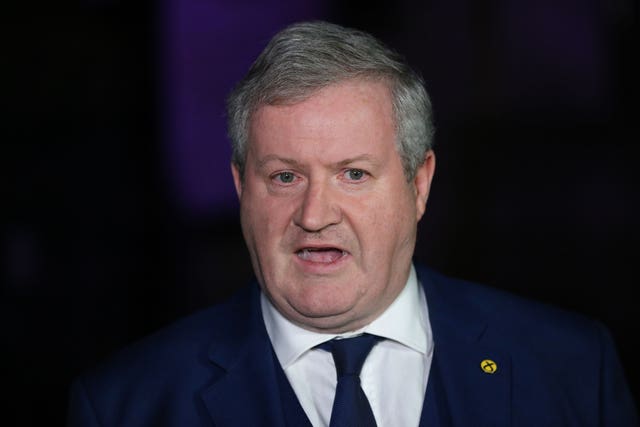
 (@korrinesky)
(@korrinesky)  (@morganlowe813)
(@morganlowe813) 

 Defend the right to vote (@LouisHenwood)
Defend the right to vote (@LouisHenwood) 
 En (@LittleBoats2020)
En (@LittleBoats2020) 




